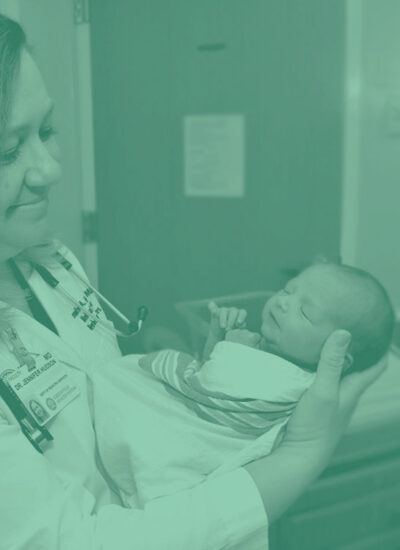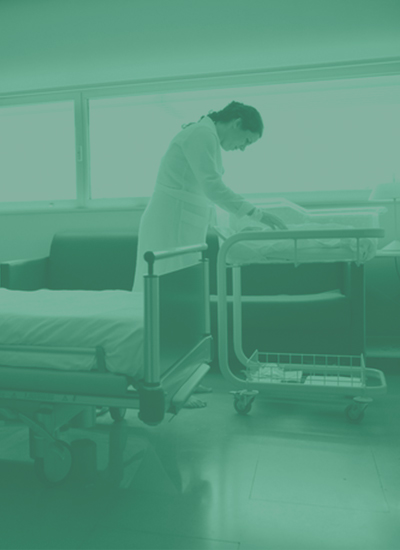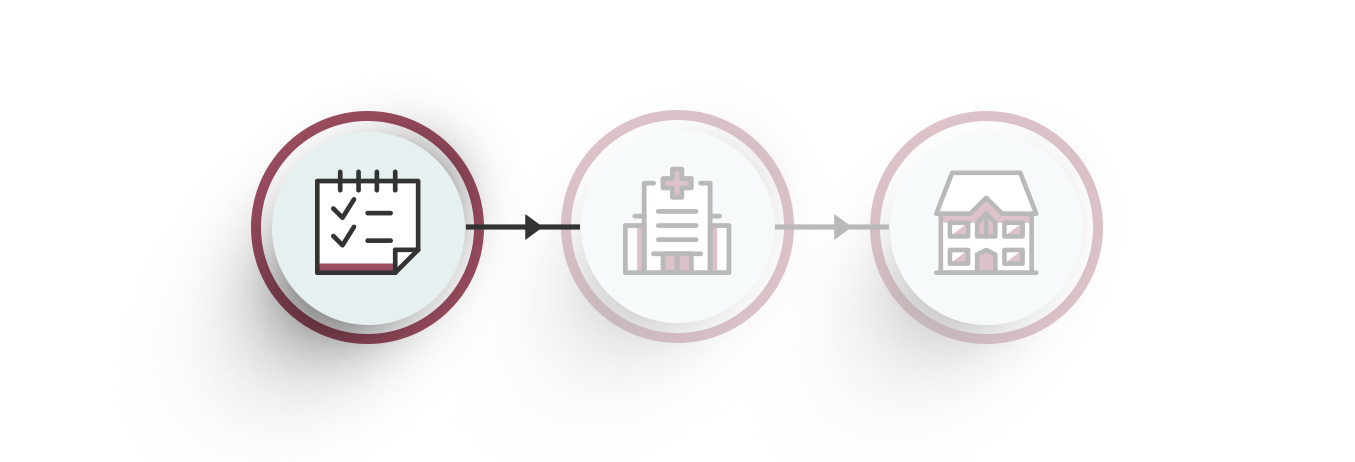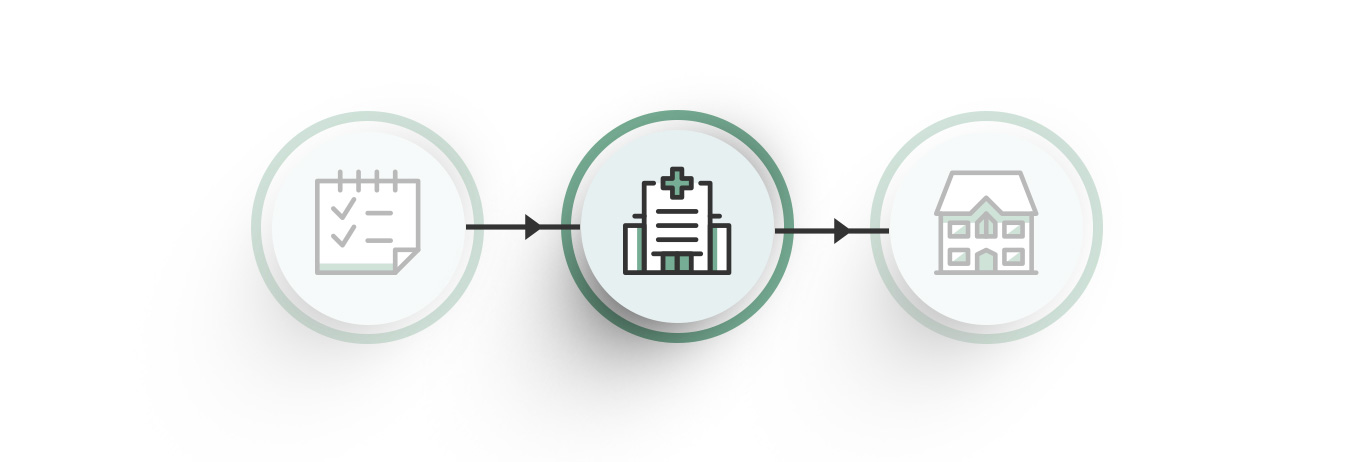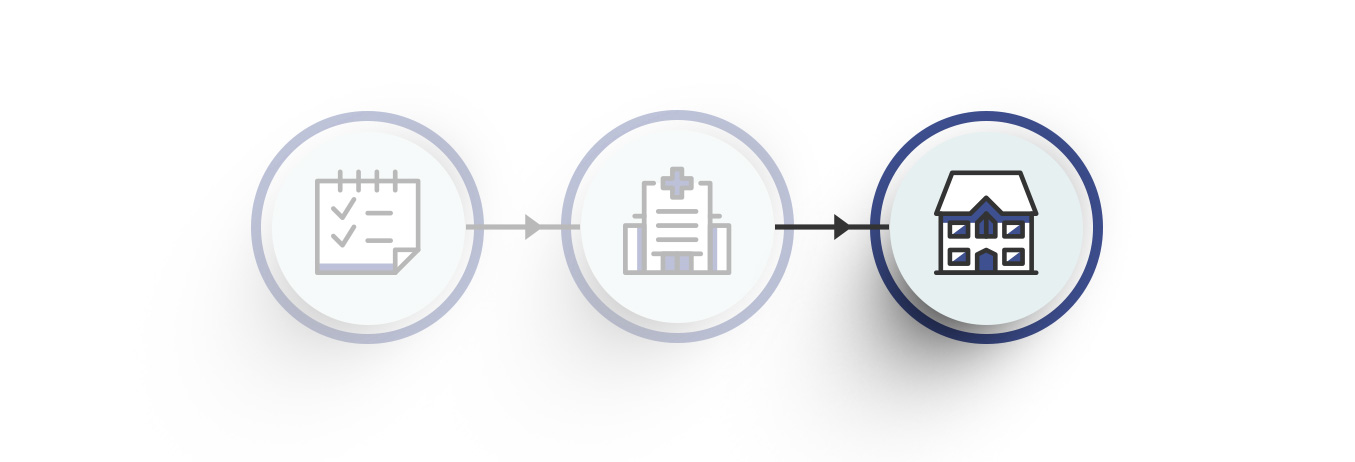1What is NAS?
NAS stands for Neonatal Abstinence Syndrome and refers to withdrawal symptoms in a newborn. NAS occurs when a baby who was exposed to certain substances or medicines through his or her mother's blood during pregnancy no longer gets them after he or she is born. When taken daily in the last 30 days of pregnancy, common medications that increase the risk for NAS include those prescribed for opioid dependence, anxiety, depression, and fibromyalgia. Using substances like nicotine or illegal drugs (pills or injected) also greatly increases the risk for withdrawal.
2What is a MAiN Nurse or Navigator?
A MAiN Nurse or Navigator is someone who may connect with you prenatally or in the hospital to help support you during pregnancy and postpartum. They will be specially trained in how opioid use disorder affects families. They may offer referrals, evaluations and feeding support, infant care and safety supplies, home visits, education, and much more. Each MAiN Nurse or Navigator will follow a small number of families and hopes to be a genuine resource for them.
3What is a MAiN Prenatal Consult?
Some mothers hear different things about what the baby will experience after birth. Certain information obtained from the internet or other sources is accurate, but some is not. The MAiN prenatal consult is a special service we offer to be sure that you get all your questions about the baby answered and know what to expect in the hospital. The physician who talks to you will estimate your baby's risk for withdrawal and a recommended plan based on the medicines you are taking. The consult also includes discussions around any special circumstances or concerns you may have, such as DSS involvement or hepatitis C virus. Most consults are completed by phone and are designed to be as helpful to you as possible.
4How long will my baby be in the hospital?
Since NAS is usually worst on the third or fourth day after birth, your baby will be monitored in the hospital for at least 5 days. Babies treated with medication will be in the hospital for 2 weeks or more. To qualify for discharge, your baby must be feeding well, not losing weight, and have low withdrawal cores off medication. Some babies need extra days in the hospital to learn feeding skills.
5Will I be able to stay with my baby?
Mothers provide better comfort to their babies than anyone else. Your touch, your smell, and your voice are all therapies for your baby. If he does not require Neonatal ICU care or close monitoring after birth, your baby will stay by your side while you are a patient. After you are discharged and depending on room availability, you may be encouraged to continue “rooming-in” with your baby until his discharge from the hospital.
6Can I prevent withdrawal in my baby?
One of the best ways to reduce the risk for withdrawal is to stop using all nicotine at least 30 days before delivering. If you are prescribed “as needed” medications for anxiety (like Klonopin), taking as little as possible can also be helpful. It is not recommended to wean or stop taking medications prescribed for opioid dependence during the third trimester.
7How will I know if my baby is withdrawing?
There are several signs you can look for to know if he is withdrawing. There are a few listed here.
- High-pitched crying, for long periods of time. Most babies will calm within a few minutes of being comforted.
- Not sleeping, especially after feedings. Most babies sleep for 21 hours a day.
- Feeding poorly or losing too much weight. Babies in the hospital are weighed every day.
- Tremors or shaking of the hands and feet. Babies often shake a little when startled, but only for 1-2 seconds.
- Restlessness. Most babies can lie still for long periods of time and only get restless when hungry.
- Frequent sneezing, especially when bothered. All babies sneeze a little to clear their noses.
- Watery stools or vomiting. Stools that soak into the diaper are considered watery.
- Fever. Having a temperature of 100.4 F or higher could be a sign of withdrawal, infection, or other illness.
- Fast breathing. This requires monitoring in the nursery or NICU until breathing becomes normal.
- Nursing staff will formally assess your baby for withdrawal every 3-4 hours while in the hospital. They will rely on you to report what you observe in your baby.
8How can I help my baby deal with symptoms of withdrawal?
First, keep your room quiet and use low lighting. The temperature should be comfortable, but not too warm. Talk to your baby in a soft and soothing voice. Learn how to swaddle using a small thin blanket or use a thin and stretchy swaddle outfit. Avoid hats and extra layers unless your baby is premature. Hold him when fussy, and use gentle motions like rocking, bouncing, patting, or swaying. Some babies like to be held sideways. Symptomatic babies often have an overactive sucking reflex, so a pacifier may be therapeutic. Overall, try to use one or two soothing techniques at a time rather than everything at once.
9Can I breastfeed my baby?
In addition to providing the best nutrition, breastfeeding can help babies who have withdrawal symptoms. Close skin-to-skin contact is also beneficial. You should be able to breastfeed your baby if there are no other substances in your system which would be harmful to give your baby. If you are also taking medications for mental health, your baby's doctor or lactation consultant can investigate their safety with breastfeeding.
10Will my baby need medication for withdrawal?
Every baby is different. Babies with a high risk for withdrawal may benefit from starting medication with weaning immediately after birth, while others with lower risk may be monitored for withdrawal and given single doses of medication if needed. Your baby's physician will talk to you about your baby's risk level and medication options in the hospital.
11Will my baby be okay?
Current research shows that the home environment has more influence on development and behavior than medication or substance exposures during pregnancy. Giving your baby plenty of love and attention, positive parenting, and good nutrition in the first 3 years will help him reach his greatest potential. Without these things, the risk for developmental and behavioral difficulties is much higher. You can monitor your baby's developmental milestones using the CDC's Milestone Tracker App. Let your baby's provider know if you have concerns about your baby's development or behavior.
12Do you refer all mothers taking long-acting opioids to the Department of Social Services (DSS)?
Many mothers with opioid use disorders in recovery have stable family situations and make healthy choices during pregnancy, so making a report to DSS is not standard. You may meet a social worker or case manager (prenatally or in the hospital), but they are generally assessing for a wide range of needed services. However, SC law mandates that concern for abuse or neglect must be reported to DSS, and so a report may be made if you test positive for an illicit substance (including marijuana) during late pregnancy. Regardless of whether DSS is involved, every mother and newborn should have a plan of safe care in place at hospital discharge.
13Will you help me choose a practice for my baby if I don’t already have one?
Your baby's first office visit will be 1- 4 days after discharge.
We strongly encourage families to research local newborn providers prior to delivery. However, if you have not chosen a practice before you deliver, the MAiN Nurse or Navigator and hospital providers will help you decide. The MAiN Team can be a resource for any outpatient partners who have questions related to MAiN patients after discharge.

